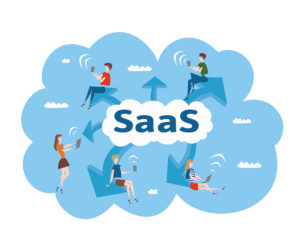
Last year was a big one in the online sales tax debate; everything changed following the Wayfair v. South Dakota Supreme Court decision. Once the ruling was announced in June, states began creating and implementing online sales tax provisions for internet retailers selling to state residents. In addition to adding uncertainty for small business trying to sort out tax code for dozens of states across the country, the ruling complicated another already-confusing situation: the taxability of SaaS (software as a service).
Online Sales Tax & SaaS in States Across the Country
How does the taxability of SaaS tie in with the Wayfair ruling? The Wayfair ruling doesn’t relate specifically to SaaS – it’s about nexus – but because states are enacting laws which now make it easier to create nexus (for instance, the South Dakota standards that started this all – sales of over $100,000 in a year OR 200 transactions), companies now need to be more diligent in determining whether their products and services are subject to tax in various states. That’s where the analysis of the SaaS revenue stream fits in. Many of our clients that were, perhaps, based in one state and may have had physical presence nexus in one or two other states didn’t have that much to worry about. But now, we need to know where their revenue streams (SaaS and others) are taxable because they are often reaching the minimum thresholds for registration, collection and filing of sales tax.
During 2018 we blogged a series that covered how states treat the SaaS revenue stream. As the posts explain, some states regard SaaS as taxable, some say it’s not and others offer no guidance. Here’s a brief overview along with links to the posts that share more:
Western States
- California: Nontaxable
- Utah: Taxable
- Washington: Taxable
Southwestern States
- Colorado: Nontaxable
- New Mexico: Taxable
- Texas: Partial Exemption
Southeastern States
- Florida: Nontaxable
- Georgia: Nontaxable
- South Carolina: Taxable
Midwestern States
- Illinois: Nontaxable
- Indiana: Depends (but generally nontaxable) – see our update on Indiana below!
- Ohio: Taxable
Northeastern States
- Massachusetts: Taxable
- New York: Taxable
- Pennsylvania: Taxable
Middle America States
- North Dakota: No Guidance
- South Dakota: Taxable
- Nebraska: Nontaxable
Online Sales Tax & SaaS Legislation from 2018
In 2018, some states decided to clarify the taxability of the SaaS revenue stream.
Rhode Island Enacts Online Sales Tax for SaaS
Beginning October 1, 2018, House Bill 7200A went into effect in Rhode Island. The legislation clarifies, “If you access or use software available via the internet … it will be taxable.”
Indiana Exempts SaaS from State Sales Tax
Back in March, Indiana passed Senate Bill 257, which exempts SaaS from the state’s 7 percent sales tax. Governor Holcomb explained, “The measure will make Indiana one of only four states to exempt software as a service in state statute…and will help make Indiana a leader in supporting the tech community by exempting all software as a service from Indiana’s sales tax.”
Online Sales Tax in 2018 and Beyond
Although 2018 was a year with some answers in the online sales tax debate, the big decision made this year ended up leaving business owners with a lot of new questions. And we expect that 2019 will continue to create confusion, compliance concerns and increased needs for diligence in this area.
Do you need help deciphering which online sales tax and other multi-state tax issues your company is responsible for? Contact us today! We’d love to answer your questions.
Miles Consulting Group, Inc. is a professional service firm in San Jose, California specializing in multi-state tax solutions. Our firm addresses state and local tax issues for our clients, including general state tax consulting, nexus reviews, tax credit and tax incentive maximization, income tax and sales/use tax planning and other special projects. To learn more, contact us today at www.MilesConsultingGroup.com.


















